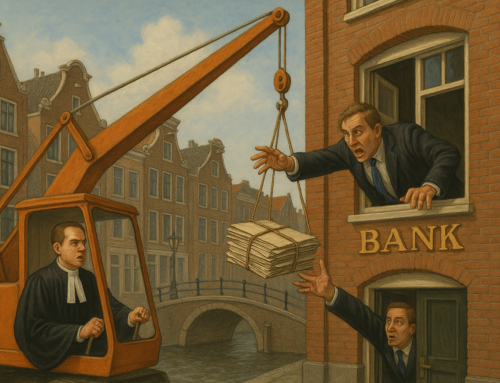A boiler room is a criminal organization that extorts money from people through fake investments. Boilerrooms disappear after a while and the loot is often hard to find after that.
Method
There is not one typical method for this criminal activity. Many boiler rooms approach their victims by telephone and persuade them to invest via a website. This website can give access to a (fake) account where the victim is led to believe that his investment is being invested, for example in shares. In reality, the boiler room funnels the money away and the investor is fooled.
What does the organization look like
Boiler rooms are a form of international financial and economic crime. Various specialized criminals are active within the organization, such as website builders, financial experts who devise ways to divert loot abroad, “account managers” who approach potential victims, cat catchers who have companies in their name, money mules who lend their bank cards. to channel money, and so on. Names and identities used are almost always false.
Shadow world
Boiler rooms work in the shade and leave as few traces as possible. If they mention an office address on a website, that means nothing. Websites, telephone and email contact use all kinds of tricks to stay out of the picture, such as VPN connections and prepay devices. Sometimes an identity of an existing person is “borrowed”. If the victim then looks on Linkedin, he thinks he is dealing with this person. A variant is a boiler room with a name that resembles a well-known asset manager or investment guru.
Police and Justice
Victims would do well to file a complaint against boiler rooms. However, the police cannot work miracles against these loose-knit criminal organizations that arise as quickly as they disappear; many declarations are dismissed. An additional problem is that the crime is aimed at the Netherlands, but from other countries, so that the police cannot do much. Reporting to the AFM makes sense. The AFM has a list of boiler rooms on its website. This list is a bit behind the times. Boilerrooms can change their name and continue their business as usual. Lawyers can help file a report, which increases the chance of finding leads that the police and the judiciary can use.
Role of the upper world
A less well-known, but sometimes effective, way to tackle boiler rooms is to target the “upper world” parties that support these criminal organizations. For example, our firm had success dealing with a civil-law notary who had set up BVs used for boiler room business. Notaries have the duty to verify the objectives of their clients, but this notary had outsourced that process to a website where online limited liability companies could be set up cheaply: an ideal situation for an “entrepreneur” with shady intentions. With a BV, a criminal organization is able to open a bank account at a bank. Boilerrooms need banks to receive and channel their victims’ deposits.
Role of the banks
Although boiler rooms are difficult to tackle, banks that have boiler rooms as customers are not. Banks are not allowed to get involved with criminal customers, but often miss signals . That has all kinds of causes. One reason is, for example, that criminals are increasingly able to open a business account online without talking to a banker at a local branch (the same pitfall as the notary who thought he could offer his services in a cheap and modern way). As a result, the bank cannot set a risk profile and some banks no longer have an account manager for certain accounts. As a result, signals (alerts) about unusual transactions are not adequately processed.
Breach of duty of care
Because banks regularly fail to intervene properly when there are unusual transactions, it is increasingly common for banks to be successfully held liable for the damage suffered by private individuals as a result of boiler rooms. Our office has extensive experience with this. A variant of this claim is that a victim holds his own bank liable because it did not intervene in unusual transactions. A lot of new case law has recently emerged on this matter.
Jurisdiction of the Dutch court
In addition, it sometimes happens that the boiler room itself is successfully tackled through civil proceedings. As mentioned, boiler rooms are often located abroad. The good news is that the Dutch court has jurisdiction to hear cases against boiler rooms because of a wrongful act on Dutch territory. The bad news is that litigating against a foreign party is more expensive because of translation costs and summoning costs. Within the European Union, countries recognize each other’s court decisions. Moreover , the possibility of a European bank attachment has been available for some time now . The possibilities for tackling the activities of boiler rooms internationally have improved in recent years.





